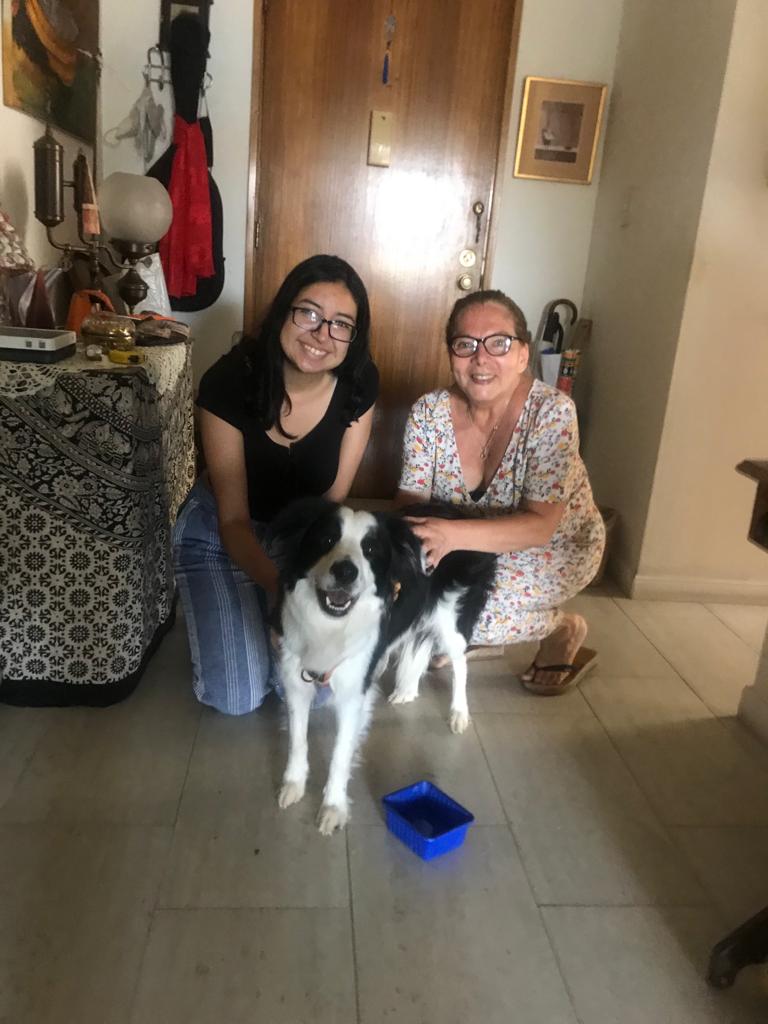
When planning out my study abroad experience, the one question I would constantly be stuck on was, “Should I live with a homestay family or live in the apartment option that IES Santiago offered?” For some background context, at Hope residential life was a huge part of my experience and time while I was there. I was a resident assistant in Scott Hall for my sophomore and junior year, and then I was a neighborhood coordinator for the fall semester before leaving for Chile. Being a part of res life was the highlight of my Hope experience and all that I received from being an RA and NC was extremely impactful in my personal growth. I enjoyed everything that came from being a part of res life. The team I got to have, the people I got to connect with, the residents I had, and the bonds I was able to build with them even after their time in Scott. I really enjoyed planning and attending events, but the best part was having a tightly knit community that I was able to feel not only during my freshman year when I lived in Scott, but the three full years that I got to experience within that building. Because of the unique experience I had living in Scott for most of my college journey, living in an apartment complex with college-aged students in Chile sounded really tempting. I would be able to be surrounded by people my age who could be going through the same emotions and experiences as myself. The apartment complex housed international students from different programs but also had a mix of Chilean students. It seemed like the perfect option for me, especially because it was what I was used to. But isn’t the whole study abroad experience about immersing yourself and living with a host family?
See, when I was researching Chile and its customs/traditions, I came across something that was interesting but not surprising for me, especially since I’m Hispanic as well. Typically in Chile, college-aged students do not move out of their homes and live on their university campus. They tend to still live with their parents while they are still studying and continue to live with their parents for a long time. Moving out and living on campus is more of a common experience for the US than it is for countries in South America. They have a more traditional ideology, something I also encountered with a few family members when I decided to leave Chicago and move to Michigan. However, I was so used to having lived independently since 2019, when I moved to Hope. Since I was also involved with summer research, every summer I would still live on campus and the time that I would spend living at home with my family was very minimal. Deciding to live with a host family again was something that I really had to think about because I did want to immerse myself in the culture. I already spoke Spanish so it wasn’t that it would better my speaking abilities, but it would teach me more about Chileans and give me a support system that I might need when going through the emotions/culture shock that I could experience while being abroad.
Finally, I ended up living with a host family, or host mom. When I arrived to her house, we were able to sit down and get to know each other but we also were able to talk about expectations for both of us. She was such a sweet person and very welcoming but something that was important for her was communication, which I totally understood. However, this was something that I really struggled with at first. I wasn’t used to texting someone to let them know I was heading out of the house, when I arrived at my class, whether or not I needed lunch, when I got home, and what my plans were in between other things. It was definitely a learning curve but something that my host mom and I were able to meet in the middle and understand each other.
There were many moments that were a learning curve throughout my homestay experience. One impactful learning moment occurred at the beginning of my study abroad. Upon having hours and hours of conversations with my host mom, I realized all the stereotypes and inaccurate impressions that many Chileans had of “Americans” and of the US. My host mom would refer to a lot of things that she had seen in movies that portrayed the US in a way that was not the same as what I personally experienced in the US. It was interesting to hear all her points of view and talk to her about my personal experiences living in the US. These were all fruitful conversations that I am really thankful for. They gave me a new perspective and pushed me into having conversations that might be a bit uncomfortable but allowed for a learning experience for both my host mom and me. I realized that the homestay experience was definitely what I needed and made my experience in Chile way better because of the conversations, new communication skills, the support system and actually having a genuine Chilean family!

